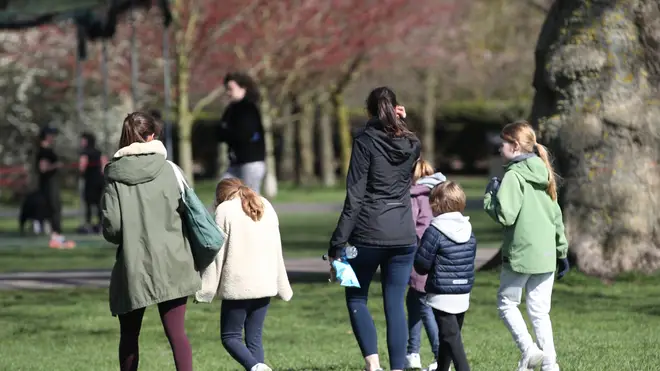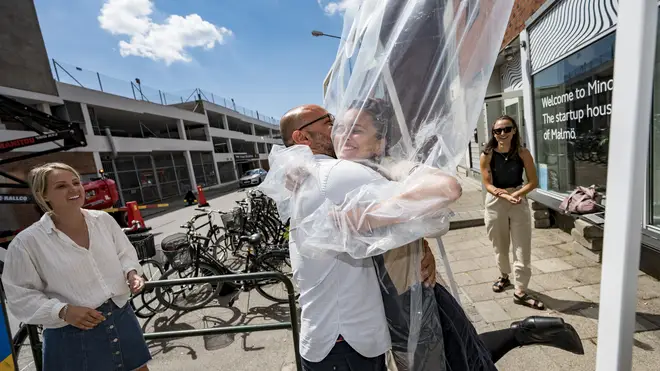
Shelagh Fogarty 1pm - 4pm
29 March 2021, 12:26 | Updated: 29 March 2021, 12:30

Hugging loved ones is still off the cards despite England’s lockdown easing, as it could potentially trigger Covid-19 to become resistant to vaccines, an expert has warned.
From today, the 'rule of six' starts again, with groups from different households allowed to mix outdoors, meaning families and friends can reunite at the park after months of restrictions.
More than half of adults in the UK have had their first dose of a vaccine too, granting partial protection. But people are being warned people must not hug at these permitted reunions.
Molecular virology Professor Jonathan Ball, at Nottingham University, has warned hugging a loved one poses too much risk of spreading coronavirus, even if they've had a jab, as it could make Covid become resistant to vaccines.
"There's still a lot of virus out there and what we don’t want to happen is for somebody to become infected who's partially immune because what can happen is that can encourage the evolutionary emergence of virus variants that are possibly resistant to the vaccine," he told LBC News.

"Anecdotally we've all witnessed it – various surveys suggest some people who’ve had a single dose of vaccine may feel they have been protected and they’re having visitors and they’re meeting up with their family.
"And they may be tempted to hug the grandchildren or hug the family members but it’s incredibly important that they don’t do that.
"I don’t want to be a doom merchant but the more risks we take the more chance we have of the virus coming back and biting us."
In England, up to six people from different households can meet outdoors, or two households of any number can gather.
It is known that coronavirus does not spread as easily outside compare to indoors.
Read more: Boris Johnson urges public to 'remain cautious' as England lockdown eases
However, Prof Ball warned that "doesn’t mean it can’t spread", and with a hug naturally bringing people physically together, it's safer to keep the two-metre distance for now.
If people are not yet fully immunised, he said it is important "they don't take undue risks because they could become infected and that could lead to the generation of viruses that are less susceptible to those vaccines that we're going to rely on so much in the future".
Dr Julian Tang, Honorary Associate Professor/Clinical Virologist at the University of Leicester, noted that 30 million people still haven’t had a single dose.
"With another (roughly) 5 million who have natural immunity from natural infection, there is still a large number of the under 50s still susceptible to the virus - more than enough to sustain a new outbreak, as we are still seeing 5000-6000 new Covid-19 cases a day," Dr Tan said.
"If we can wait a bit longer until we vaccinate more of the younger people to suppress the amount of circulating virus more completely, hugging will become safer later on this year."
The number of people fully immunised will be the key indicator to when hugging loved ones becomes safe again.
In the UK, more than 30 million people have had their first dose, and 3.5 million have been given their second.